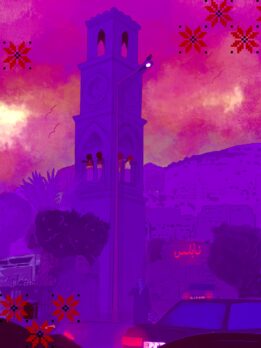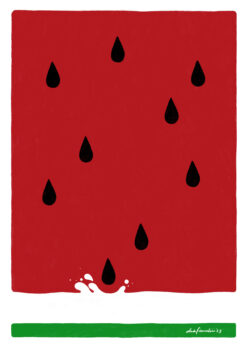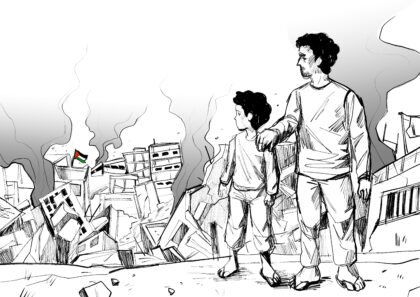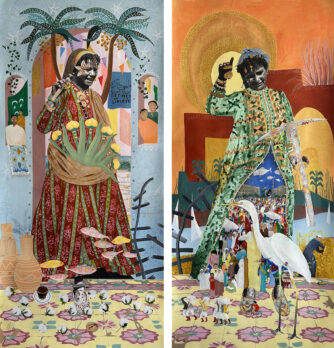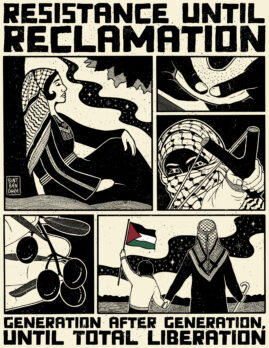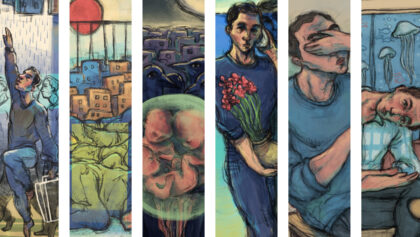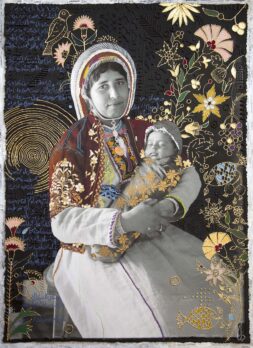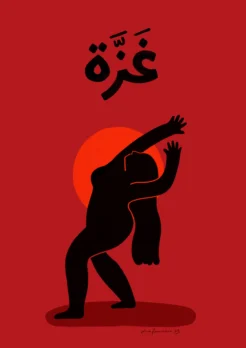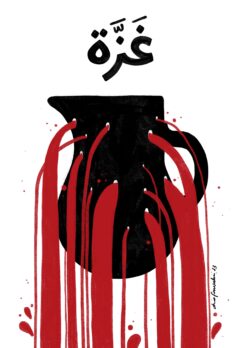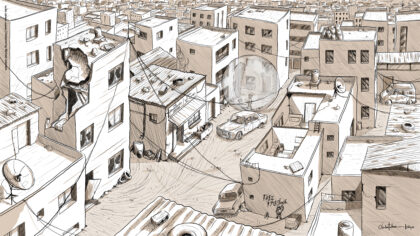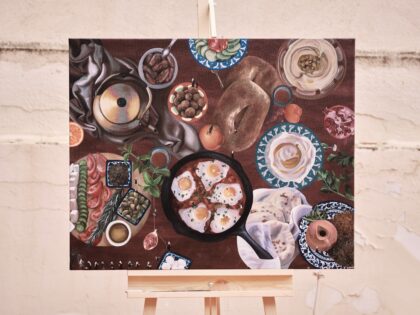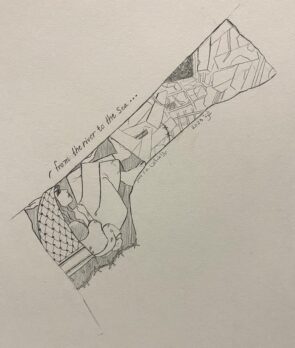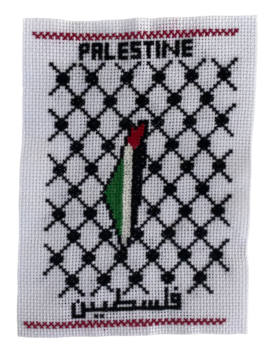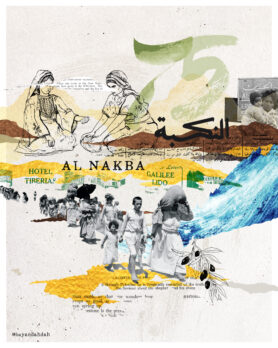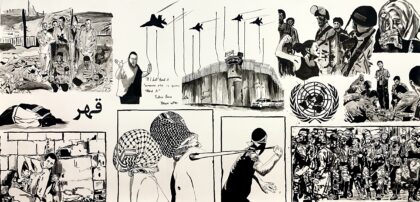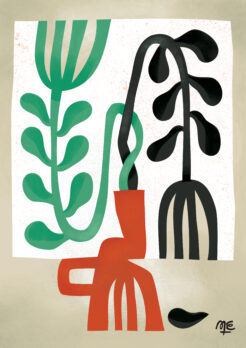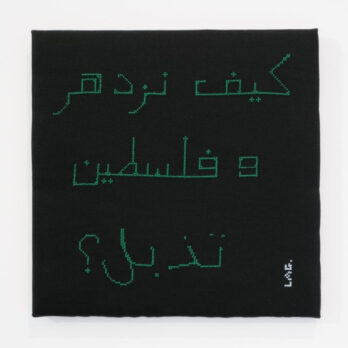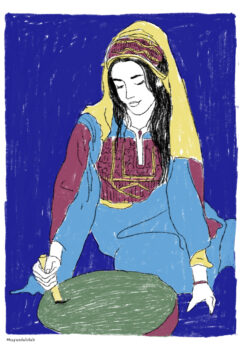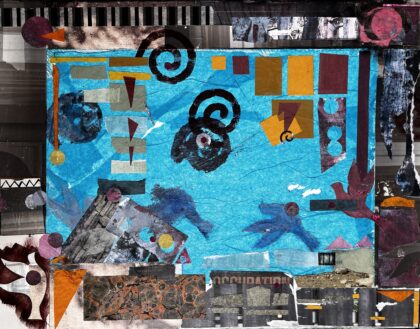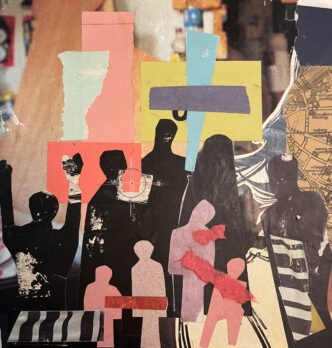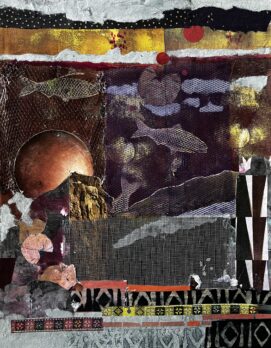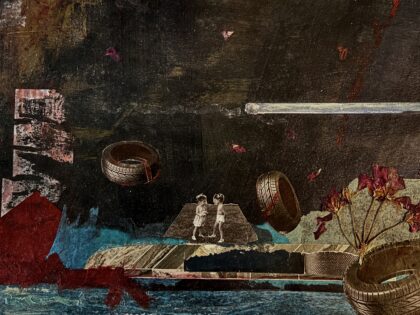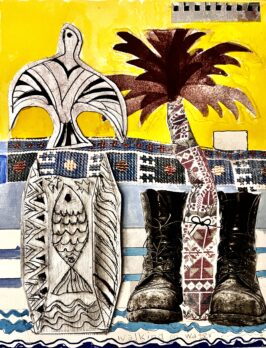 Artwork by Dana Barqawi
Artwork by Dana Barqawi
Poems by Rashid Hussain, translated from Arabic by Salma Harland
Against
ضد
I’m against my country’s revolutionaries
Wounding an ear of wheat
Against the child
Any child
Holding a grenade
Against my sister
Studying the muscles of a gun
Against it all
But
What can a prophet
A prophetess
Do when their eyes are forced to drink
The sight of the raiders’ hordes?
I’m against my child
Becoming a hero at ten
Against the tree flowering
Explosives
Against the branches
Becoming gallows
Against the flowerbeds
Becoming trenches
Against it all
But
After fire razes my country
My friends
My land
How can I stop my poems from
Becoming guns?
ضدُّ.. أن يجرحَ ثوّارُ بلادي سنبلةْ ضدُّ.. أن يحملَ طفلٌ أيُّ طفلٍ قنبلةْ ضدُّ.. أن تدرسَ أختي عضلاتُ البندقيّةْ ضدُّ ما شئتم ولكن ما الذي يفعلهُ حتّى نبيٌّ أو نبيّةْ حينما تشربُ عينيهِ وعينيها خيولُ القتلة؟ ضدُّ.. أن يصبحَ طفلي بطلاً في العاشرةْ ضدُّ.. أن يثمرَ ألغاماً فؤادُ الشجرةْ ضدُّ.. أن تصبحَ أغصانُ بساتيني مشانقْ ضدُّ.. تحويل حياض الوردِ في بيتي خنادقْ ضدُّ ما شئتم ولكن بعد إحراق بلادي ورفاقي وترابي كيفَ لا تصبحُ أشعاري بنادقْ..!!
Excerpt from Gaza, My Love
حبيبتي غزة (مقتطف)
I’m tired of empty words O Gaza I’m tired Raging fires before me The sea behind I go towards the fire And I drink from the flames I’m tired My Skin My Bone My Mind Ablaze And the fire drinks From my eyes
مُتعَبٌ من خُطَبِ الأقزامِ يا غزّة مُتعَبْ.. وورائي البَحرُ والنّارُ أمامي ولذا.. أمشي على قلبي إلى النّارِ وأشرَبْ مُتعَبٌ.. جلدي استوى عظمي استوى عقلي استوى والنّارُ من عينيَّ تشرَبْ
In a State of War
في حالة حرب
My poetry is in a state of war My love is in a state of war My father’s olives are in a state of war What have they left me But to say I’m in a state of war? Even poetry lives And dies While the people remain Forever In a state of war
شعري في حالةِ حربْ حبي في حالةِ حربْ زيتونُ أبي في حالةِ حربْ ماذا تركوا لي غيرَ القولِ: أنا في حالةِ حربْ؟.. لكن.. الشعرُ يعيشُ الشعرُ يموتُ ويبقى الشعبْ.. أبداً في حالةِ حربْ
Translator’s Note:
Rashid Hussain (1936 – 1977) was a Palestinian-American poet, journalist, Hebrew-Arabic translator, and UN correspondent. During his lifetime, he was critically acclaimed by Jewish and Arab writers alike for his poetic works; translations between Hebrew and Arabic; and numerous collaborations with Jewish poet-translators. A Palestinian who grew up under British-mandate Palestine, Hussain witnessed the 1948 Arab-Israeli War and the 1948 Palestinian expulsion and flight (also known as the Nakba) before spending the last few decades of his life in exile in Paris and in New York with his Jewish American wife Ann Lavee Hussain. On 2 February 1977, he died in a fire at his New York apartment under dubious circumstances. Hussain’s works engages with the human consequences of war, reflecting on hunger, anger, and forced displacement. Palestine’s award-winning national poet Mahmoud Darwish often commended Hussain’s poetic works, considering him the father of modern Palestinian poetry. These poems are in the public domain, previously published in 1957 and 1958.
